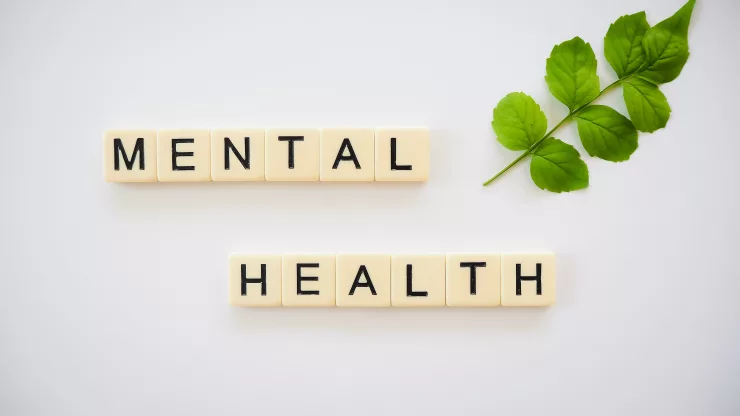Jump to Section
Introduction: The importance of sleep for health and wellness
Sleep is a vital component of a healthy lifestyle.
It is as important as regular exercise and a balanced diet. It is a natural process that allows the body to rest and rejuvenate.
Sleep is crucial in maintaining physical and mental health, and a lack of it can have serious consequences.
In this article, we will discuss the importance of sleep, the sleep-wake cycle, the effects of sleep deprivation, and tips for improving sleep quality and quantity.
Understanding the sleep-wake cycle and its impact on health
The sleep-wake cycle is a natural process that regulates our sleep patterns. It is controlled by the body’s internal clock, which is influenced by external factors such as light and temperature.
The cycle consists of two main stages: non-rapid eye movement (NREM) and rapid eye movement (REM) sleep.
NREM sleep is the stage in which the body repairs and regenerates tissues, while REM sleep is the stage in which the brain consolidates memories and processes emotions.
The sleep-wake cycle has a significant impact on our health. It affects our immune system, hormone production, and metabolism.
Disruptions to the cycle can lead to a variety of health problems, including obesity, diabetes, cardiovascular disease, and mental health disorders such as anxiety and depression.
The effects of sleep deprivation on physical and mental health
Sleep deprivation occurs when an individual fails to get enough sleep. It can be caused by a variety of factors, including stress, anxiety, and medical conditions.
The effects of sleep deprivation on physical and mental health can be severe.
Physical effects can include fatigue, headaches, and a weakened immune system. Chronic sleep deprivation can also increase the risk of developing chronic diseases such as diabetes and cardiovascular disease.
Mental effects can include mood swings, irritability, and difficulty concentrating. Chronic sleep deprivation can also lead to mental health disorders such as depression and anxiety.
Tips for improving sleep quality and quantity
There are several ways to improve sleep quality and quantity. These include:
- Establishing a regular sleep routine
- Creating a sleep-conducive environment
- Avoiding caffeine and alcohol before bedtime
- Exercising regularly
- Managing stress and anxiety
- Avoiding electronic devices before bedtime
By incorporating these tips into your daily routine, you can improve your sleep quality and quantity, leading to better physical and mental health.
The link between sleep and a healthy lifestyle
Sleep is an essential component of a healthy lifestyle. It is as important as regular exercise and a balanced diet.
Getting enough sleep can improve physical and mental health, boost productivity, and enhance overall quality of life.
Incorporating healthy sleep habits into your daily routine can lead to a happier, healthier you. It can help reduce stress, improve mood, and increase energy levels.
By prioritizing sleep, you can achieve optimal health and wellness.
Conclusion: Prioritizing sleep for a happier, healthier you
Sleep is a crucial component of a healthy lifestyle. It is essential for physical and mental health, and a lack of it can have serious consequences.
By understanding the sleep-wake cycle, the effects of sleep deprivation, and tips for improving sleep quality and quantity, you can prioritize sleep and achieve optimal health and wellness.
Remember, getting enough sleep is just as important as regular exercise and a balanced diet. By incorporating healthy sleep habits into your daily routine, you can lead a happier, healthier life.
FAQ
How much sleep do I need?
The amount of sleep you need varies depending on your age and lifestyle. Generally, adults need between 7-9 hours of sleep per night, while children and teenagers need more.
It’s important to listen to your body and get enough sleep to feel rested and refreshed.
What should I do if I have trouble sleeping?
If you have trouble sleeping, there are several things you can try. Establishing a regular sleep routine, creating a sleep-conducive environment, and managing stress and anxiety can all help improve sleep quality and quantity.
If these strategies don’t work, it’s important to talk to your healthcare provider to rule out any underlying medical conditions.
Is it bad to nap during the day?
Napping during the day can be beneficial for some people, especially if they didn’t get enough sleep the night before.
However, it’s important to limit naps to 20-30 minutes and avoid napping too close to bedtime.
Napping too much or too close to bedtime can disrupt the sleep-wake cycle and make it harder to fall asleep at night.

With a deep passion for personal development, Ben has dedicated his career to inspiring and guiding others on their journey towards self-improvement.
His love for learning and sharing knowledge about personal growth strategies, mindfulness, and goal-setting principles has led him to create My Virtual Life Coach.
Contact Ben at [email protected] for assistance.




